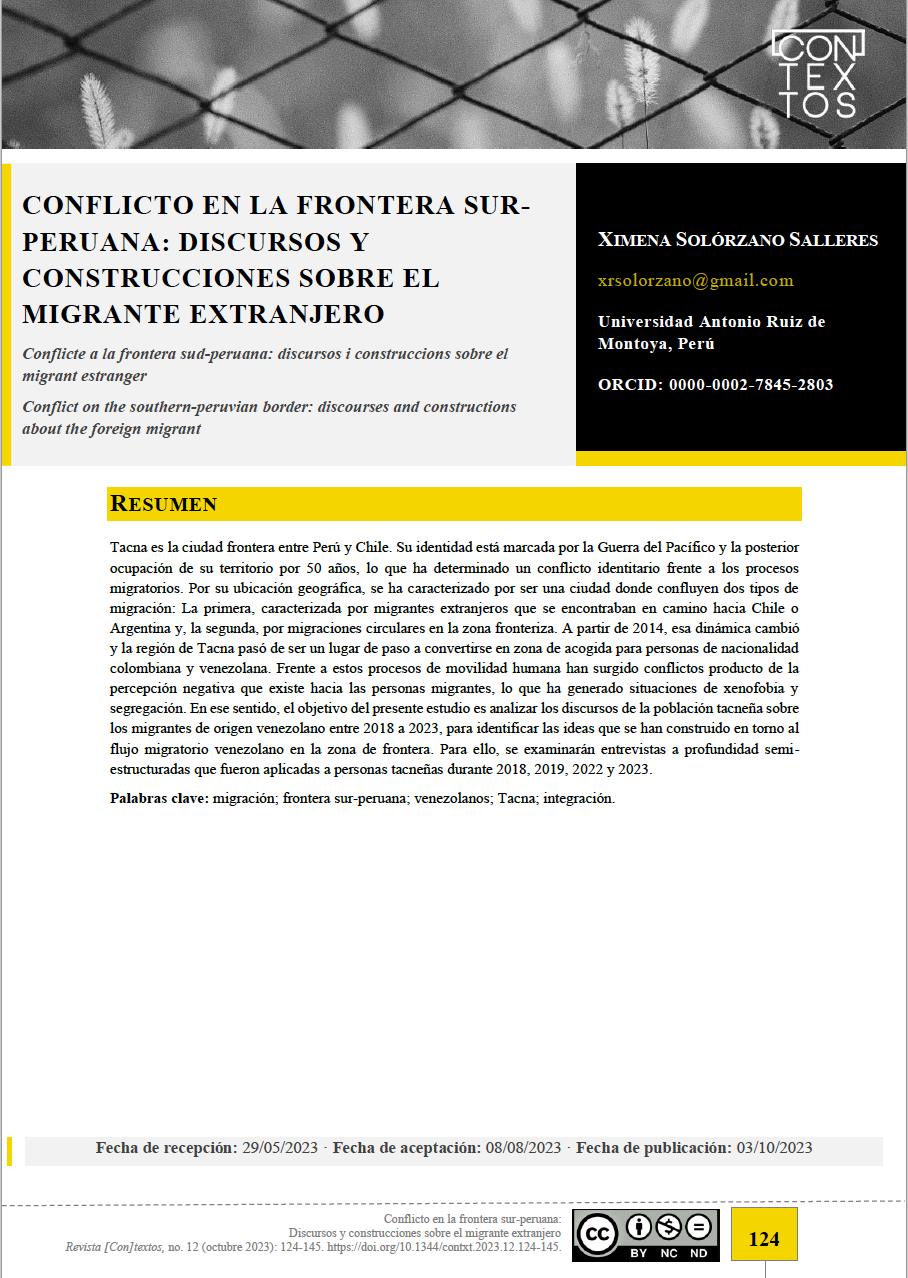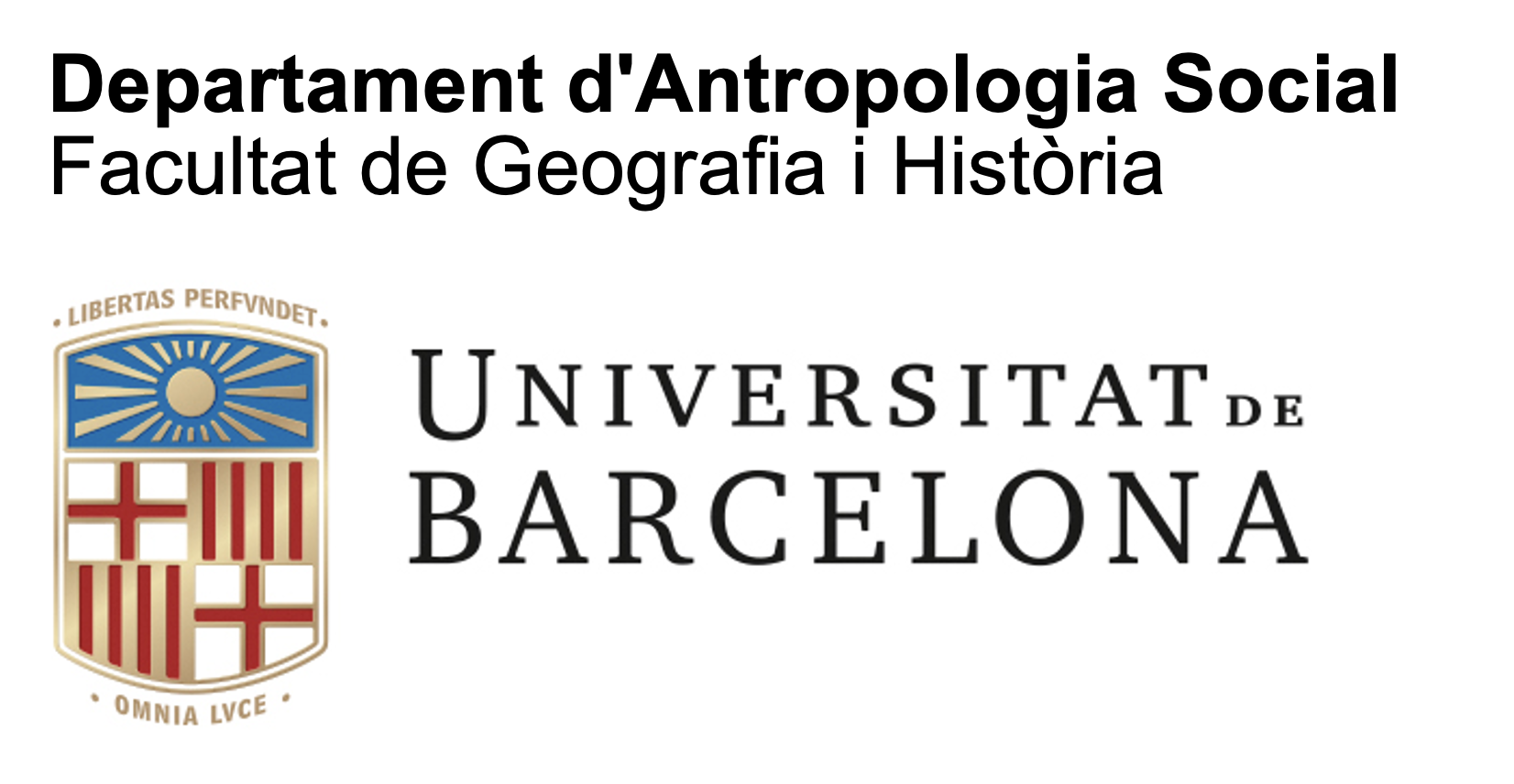Conflict on the southern peruvian border: discourses and constructions about the foreign migrant
DOI:
https://doi.org/10.1344/contxt.2023.12.124-145Keywords:
migration, southern-Peruvian border, Venezuelans, Tacna, integrationAbstract
Tacna is the border city between Peru and Chile. Its identity is marked by the War of the Pacific and the subsequent occupation of its territory for 50 years, which has determined an identity conflict in the face of migratory processes. Due to its geographical location, it has been characterized as a city where two types of migration converge: the first, characterized by foreign migrants who were on their way to Chile or Argentina, and the second, by circular migrations in the border area. Starting in 2014, this dynamic changed and the Tacna region went from being a place of passage to becoming a reception area for people of Colombian and Venezuelan nationality. Faced with these processes of human mobility, conflicts have arisen as a result of the negative perception that exists towards migrants, which has generated situations of xenophobia and segregation. In this sense, the objective of this research is to analyze the discourses of the Tacneña population about migrants of Venezuelan origin between 2018 and 2023, to identify the ideas that have been built around the Venezuelan migratory flow in the border area. For this, semi-structured in-depth interviews that were applied to people from Tacna during 2018, 2019, 2022 and 2023 will be examined.
Downloads

Downloads
Published
How to Cite
Issue
Section
License
The authors who publish in this journal agree to the following terms:
The author retains the authorship rights, and grants (Con)textos: revista d'antropologia i investigació social the rights to the first publication of the article.
The author authorizes the reproduction and dissemination of their articles in indexing and abstract services, academic databases and repositories in which the journal currently or in the future participates. After No 13, texts will be disseminated with the Creative Commons - Attribution (CC-by) license as long as the author and the journal are acknowledged. The articles in issues 1 to 12 were published under a Creative Commons Attribution-NonCommercial-NoDerivatives (CC-by-nc-nd) license.
Likewise, the authors can deposit the final version accepted for publication in institutional or thematic open access repositories. (Con)textos: revista d'antropologia i investigació social does not accept any responsibility for the views and statements made by the authors in their works.






